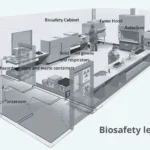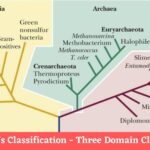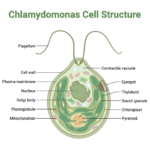IB Biology 6 Views 1 Answers
Sourav Pan🥇 GoldNovember 9, 2024
How can a deficiency of Vitamin D or calcium lead to conditions like rickets or osteomalacia, and how does this affect bone mineralization?
How can a deficiency of Vitamin D or calcium lead to conditions like rickets or osteomalacia, and how does this affect bone mineralization?
Please login to save the post
Please login to submit an answer.
Sourav Pan🥇 GoldMay 15, 2025
Vitamin D and calcium are essential nutrients that play critical roles in bone health and mineralization. A deficiency in either of these nutrients can lead to conditions such as rickets in children and osteomalacia in adults. Here’s how these deficiencies affect bone mineralization and overall health.
Causes of Rickets and Osteomalacia
- Vitamin D Deficiency:
- Vitamin D is crucial for the absorption of calcium and phosphorus from the intestines. Without adequate vitamin D, the body cannot absorb enough calcium, leading to low calcium levels in the blood (hypocalcemia). This deficiency can occur due to several factors:
- Lack of sunlight exposure, which is necessary for the skin to synthesize vitamin D.
- Insufficient dietary intake of vitamin D-rich foods (e.g., fatty fish, fortified dairy products).
- Certain medical conditions that affect vitamin D metabolism or absorption, such as celiac disease or liver disease.
- Vitamin D is crucial for the absorption of calcium and phosphorus from the intestines. Without adequate vitamin D, the body cannot absorb enough calcium, leading to low calcium levels in the blood (hypocalcemia). This deficiency can occur due to several factors:
- Calcium Deficiency:
- Calcium is a vital mineral for bone structure and strength. A deficiency can result from inadequate dietary intake or poor absorption due to gastrointestinal disorders. When calcium levels are low, the body compensates by pulling calcium from bones, leading to weakened bone structure.
Consequences of Deficiencies
- Rickets:
- Rickets is primarily a childhood condition resulting from vitamin D and calcium deficiencies. It affects bone development, leading to soft and weak bones that can deform under pressure. Symptoms include:
- Bowing of the legs.
- Bone pain and tenderness.
- Delayed growth and development.
- The lack of mineralization during bone growth leads to improperly formed bones, which can have long-term effects on skeletal health.
- Rickets is primarily a childhood condition resulting from vitamin D and calcium deficiencies. It affects bone development, leading to soft and weak bones that can deform under pressure. Symptoms include:
- Osteomalacia:
- Osteomalacia is the adult equivalent of rickets, characterized by softening of the bones due to inadequate mineralization. This condition results from prolonged vitamin D deficiency or calcium deficiency. Symptoms include:
- Bone pain and tenderness.
- Increased risk of fractures.
- Muscle weakness.
- In osteomalacia, there is an accumulation of unmineralized osteoid tissue due to insufficient calcium and phosphorus, which compromises bone integrity.
- Osteomalacia is the adult equivalent of rickets, characterized by softening of the bones due to inadequate mineralization. This condition results from prolonged vitamin D deficiency or calcium deficiency. Symptoms include:
Impact on Bone Mineralization
- Bone Structure: Both rickets and osteomalacia lead to impaired bone mineralization, meaning that bones do not contain adequate amounts of minerals like calcium and phosphate necessary for strength and rigidity. This results in softer bones that are more prone to deformation and fractures.
- Osteoid Accumulation: In osteomalacia, there is an increase in osteoid tissue (the organic matrix of bone) without adequate mineral content. This condition reflects a failure in the mineralization process during bone remodeling .
- Long-Term Effects: Chronic deficiencies can lead to permanent skeletal deformities in children (rickets) and increased fracture risk in adults (osteomalacia). The structural integrity of bones is compromised, leading to complications such as osteoporosis later in life.
Treatment and Prevention
- Dietary Intervention: Ensuring adequate intake of vitamin D (through sun exposure or supplements) and calcium (from dairy products, leafy greens, or fortified foods) is crucial for preventing these conditions .
- Supplementation: For individuals at risk or diagnosed with deficiencies, supplementation with vitamin D and calcium may be necessary to restore healthy levels and promote proper bone mineralization .
- Regular Monitoring: Blood tests can help monitor vitamin D and calcium levels, especially in populations at higher risk for deficiencies (e.g., infants, elderly individuals, those with limited sun exposure).
0
0 likes
- Share on Facebook
- Share on Twitter
- Share on LinkedIn




